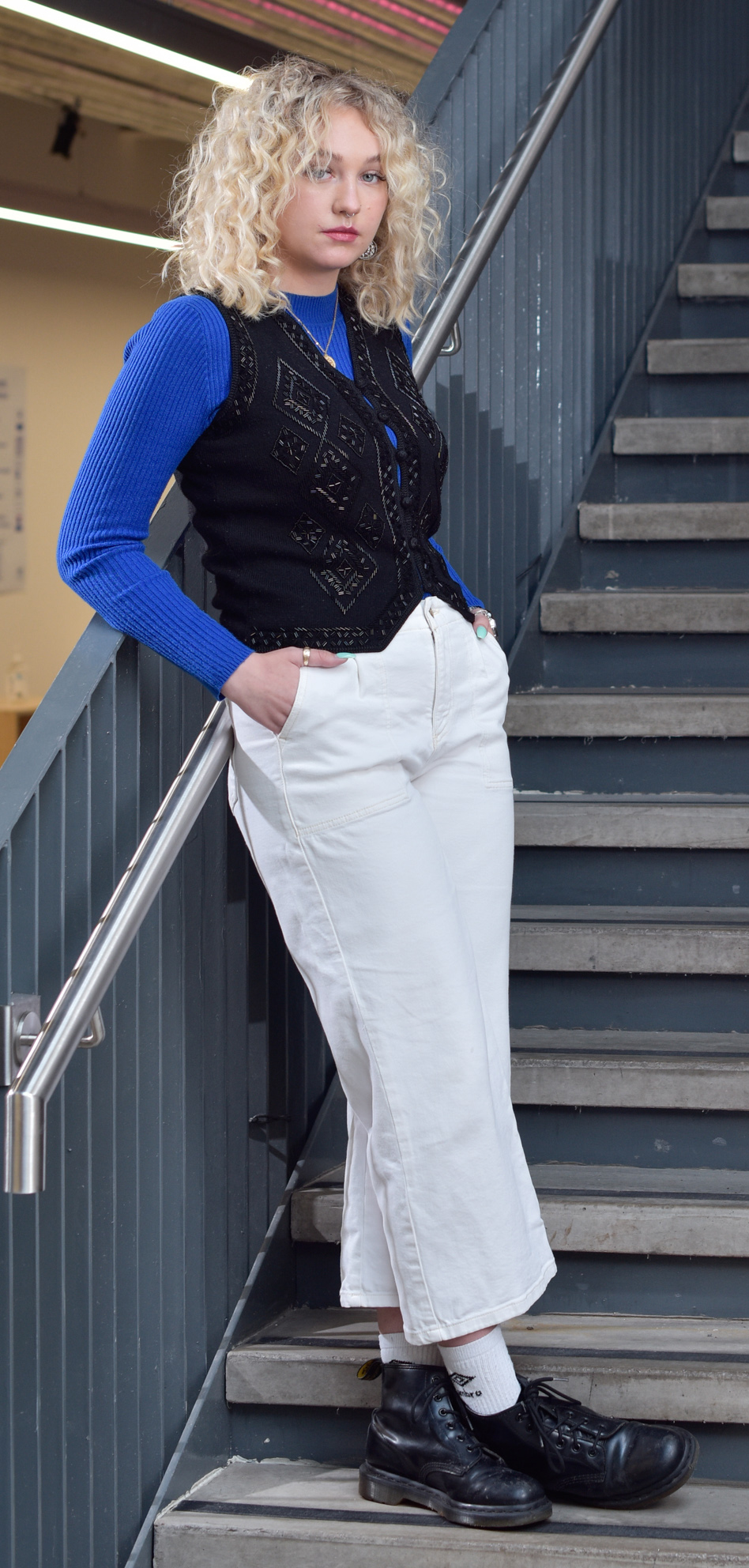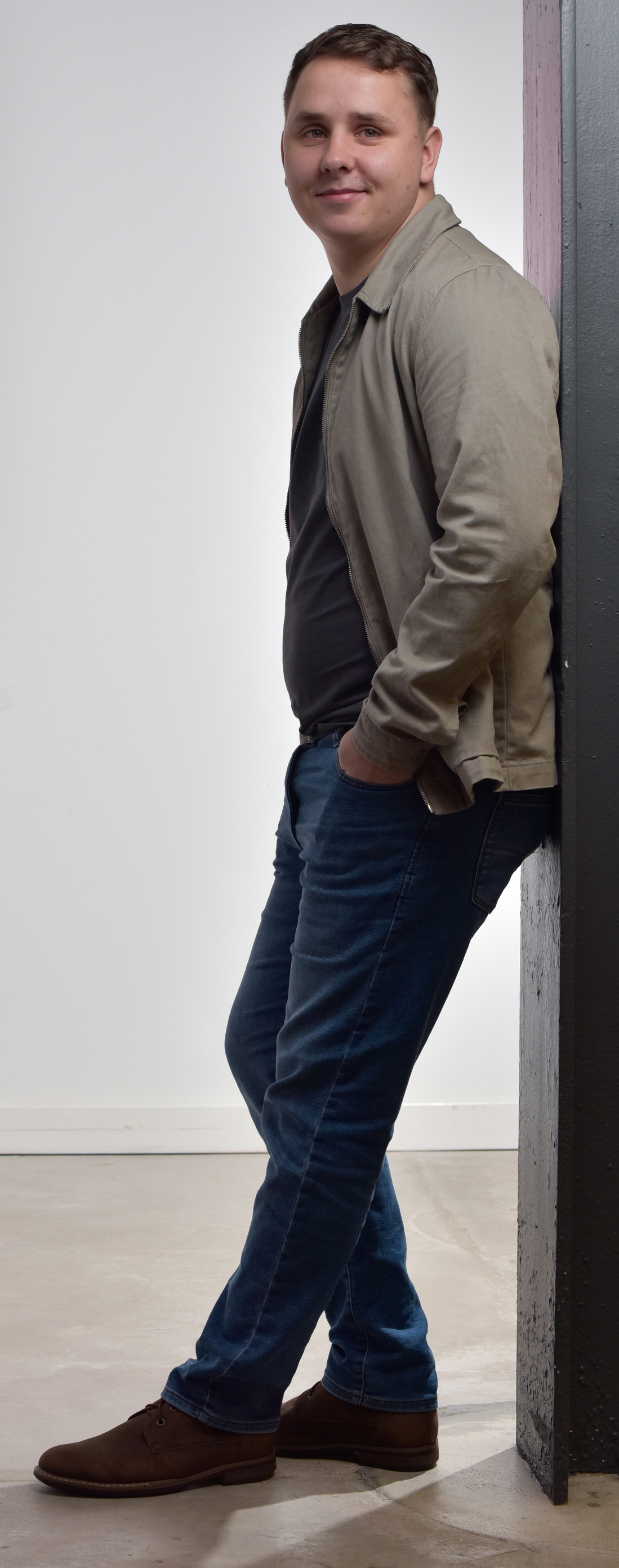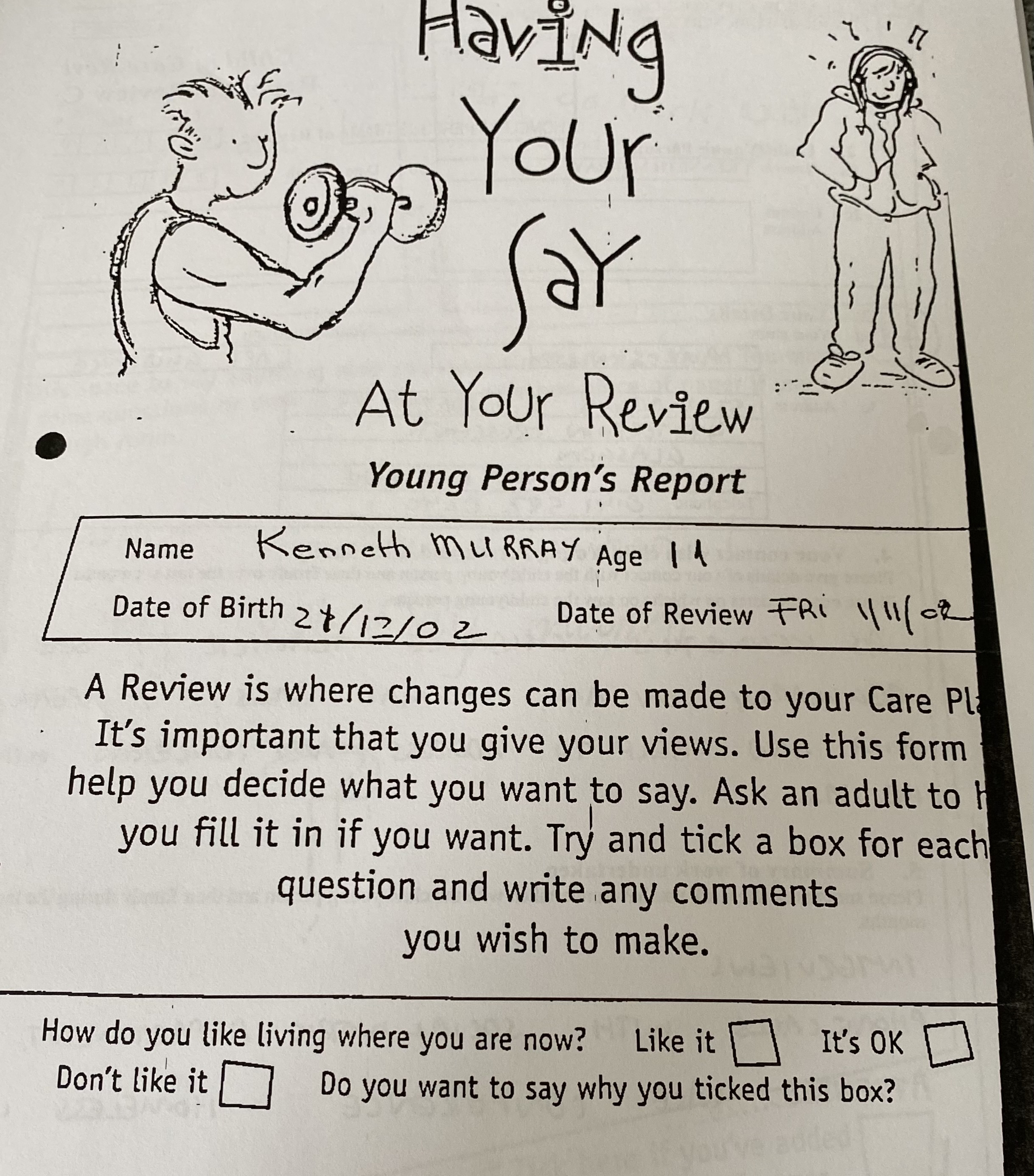Holding / Holding on: Experiencing care in contemporary Scotland
Ahead of the screening of Holding / Holding On, part of a project investigating the impact that the arts can make within a care context across Scotland, we asked two of the project's community collaborators to write about their work on the project and their direct experiences of the care system in Scotland.
A version of this article was first published on the National Theatre of Scotland website, 21 June 2021.

“History, despite its wrenching pain, cannot be unlived, but if faced with courage, need not be lived again.” - Maya Angelou
 Having my say - Charlotte Armitage
Having my say - Charlotte Armitage
My name is Charlotte Armitage. I’m a Care-Experienced young woman and a second-year History and Sociology student.
I find history, looking back at the past, fascinating. I think in one way or another I always have. My love for history was disrupted when I was taken into care and I had to move school halfway through my fourth year. Overnight, history became a subject I was no longer allowed to take because the class was already ‘full’. I lost my interest in history, only for a short while, as a result.
During my time in care, and in the immediate aftermath of leaving care, history felt somewhat unimportant. Life was happening right there in front of me and it was happening chaotically. Every day it felt more important to focus on the here and now rather than looking back at the past.
As I got older my perspective shifted. Aged 20, I embarked on a journey of post-traumatic growth, and that journey directed me back to the past; my past. I went through a process of learning every single detail about my life that I could so I could unpick it, analyse it, and then heal from it. This involved requesting and then obsessively reading every single record held about me and my life - social work files, court transcripts, and health records. After doing this I felt a weight shift, and my self-awareness and acceptance grew. I felt at peace with my past and what I had experienced in childhood.
That was short-lived. Soon that peace turned into curiosity. I knew every single detail about my life, but nothing about where I came from. Nothing about the heritage or culture of people like me - people that grew up in care. I wanted to know why.
The opportunity to explore my own life history and the history of Care-Experienced people with the National Theatre of Scotland has expanded my knowledge and understanding of who I am and why things happened the way that they did, more than I had anticipated.
Throughout this journey many quiet thoughts I had kept to myself about why governments avoid acknowledgment of the treatment of Care-Experienced people throughout history are now refined and articulated in a way that is hard to ignore.
This project has made me really understand how intrinsically linked poverty, class and care are in this country, throughout history, and still today. Having the space to flesh out my own experiences in a way that I hadn’t done before, connected to the wider history of Care-Experienced and working-class people in Great Britain, has helped me to affirm my recognition that the state has held the role of aggressor, oppressor, and enabler of maltreatment of Care-Experienced people for centuries; and, in my view, no one ever talks about it.
This recognition has sent me on another journey. I’m now starting to process what this recognition means for me for the rest of my life. I’m exploring how to break intergenerational cycles I’ve wound up in because of a society that fails to recognise that throughout history, we have created and perpetuated the poverty in which a whole class of people has been forced to live in, and this inequality impacts all of us, across all classes.
I hope that this project causes people in Scotland to ask “why?” Why are we comfortable with children being removed from their families when there are other options? Why do we then expect these children to adapt to a way of life entirely different to where they come from?
I don’t know the answers to those questions. But I’m grateful that Nicola McCartney, and National Theatre of Scotland, gave me the space to start the conversation.
Having my say - Kenneth Murray
Over the last year, I have been really excited to be a part of the listening project with the National Theatre of Scotland and Nicola McCartney. The project has fundamentally changed my life in terms of my perspective on my own life story and my abilities as a writer. This has only been possible because I felt listened to and felt like my voice was going to be captured in a way which would mean something.
As a child I was always vocal. I knew exactly what I wanted and I knew why. I regularly wrote stories detailing how I felt about things, I joined the school debate society and I made sure everyone knew exactly what my views of the world were.
This isn’t some vague rose-tinted recollection I have. It’s an objective truth. Yet, you’d be hard-pressed to understand that when you read the thousands of social work notes which detail my life, instead of photo albums, report cards, and memory books.
In-between pages of black bars, redacting information some unknown person decided I’m not allowed to see about my own life, everyone was afforded their different perspectives. Notes detailed the views of everyone in my life from doctors and teachers to foster carers.
In some pages it was a simple stating of facts as to where I was living and which school I was attending. In others, it was dissenting opinion about my behaviour, what it meant and why I shouldn’t be listened to.
According to one carer, I turned everything into an argument, which made them “glad to not be Kenneth’s social worker”, which is I assure you, a direct quote. A teacher said I was exemplary in my understanding of language and this was demonstrated in my abilities in the school debating team.
My records are full of conversations like this. Disputes about whether claims I was making were fact or questioning my motives in a way which seems odd when you remember I was eleven. Throughout my records, it’s clear something is missing. My voice.
I measured it as well as I could and throughout the thousands of pages, there are only two pages which feature my voice and I only say one thing, “When will I see my Mum again?”
At eleven years of age, I wrote that in every one of the measly boxes I was given to voice my opinion. Boxes which paled in comparison to the ones professionals were given to share their views. It was clear, my voice wasn’t important.
There was no space to share the stories I had written which would have captured my mood and my feelings, no opportunity to speak up in a safe environment and feel heard. As a result I didn’t ever feel like speaking up made a difference.

I always wondered how people felt so able to judge and make claims about my behaviour without asking me.
As I grew into an adult, I began to understand the role media plays in public attitudes and how we respond to those whose lives we only understand through media.
When you look at the media portrayal of Care-Experienced people, it’s clear that it sits on a spectrum of superhero to psychopath. The explanation for a character being evil is often attributed to their time spent in care and for superhero’s it becomes their weakness. It’s clear that nobody writing them has ever spoken to someone in care.
I campaign to change the narrative of how those with experience of care are represented in media and when I was approached about this project, I was immediately excited at the opportunity to speak up but also for so many others to be heard.
Throughout my involvement, it has been clear to me how Nicola has made people feel heard and has captured their voice in a way which tells their story on their own terms. Myself included.
My own voice is captured in a filmed table reading of a work in progress script, as well as through the main piece, penned by Nicola. I tell the story of a family within a community which is at odds with a system that doesn’t understand their lives or how to support them. If you were to boil it down, a system which doesn’t know how to listen.
If you’re thinking of booking tickets to Holding / Holding On, please prepare yourself to listen and then take action. It’s something we’ve always wanted.
Holding/Holding on | Care in contemporary Scotland, a creative enquiry is showing online from 30 June - 21 July. You can find more information here
Pictures: Nicola McCartney
The views expressed in this blog post are those of the author/s and may not represent the views or opinions of CELCIS or our funders.
Commenting on the blog posts
Sharing comments and perspectives prompted by the posts on this blog are welcome. CELCIS operates a moderation process so your comment will not go live straight away.


